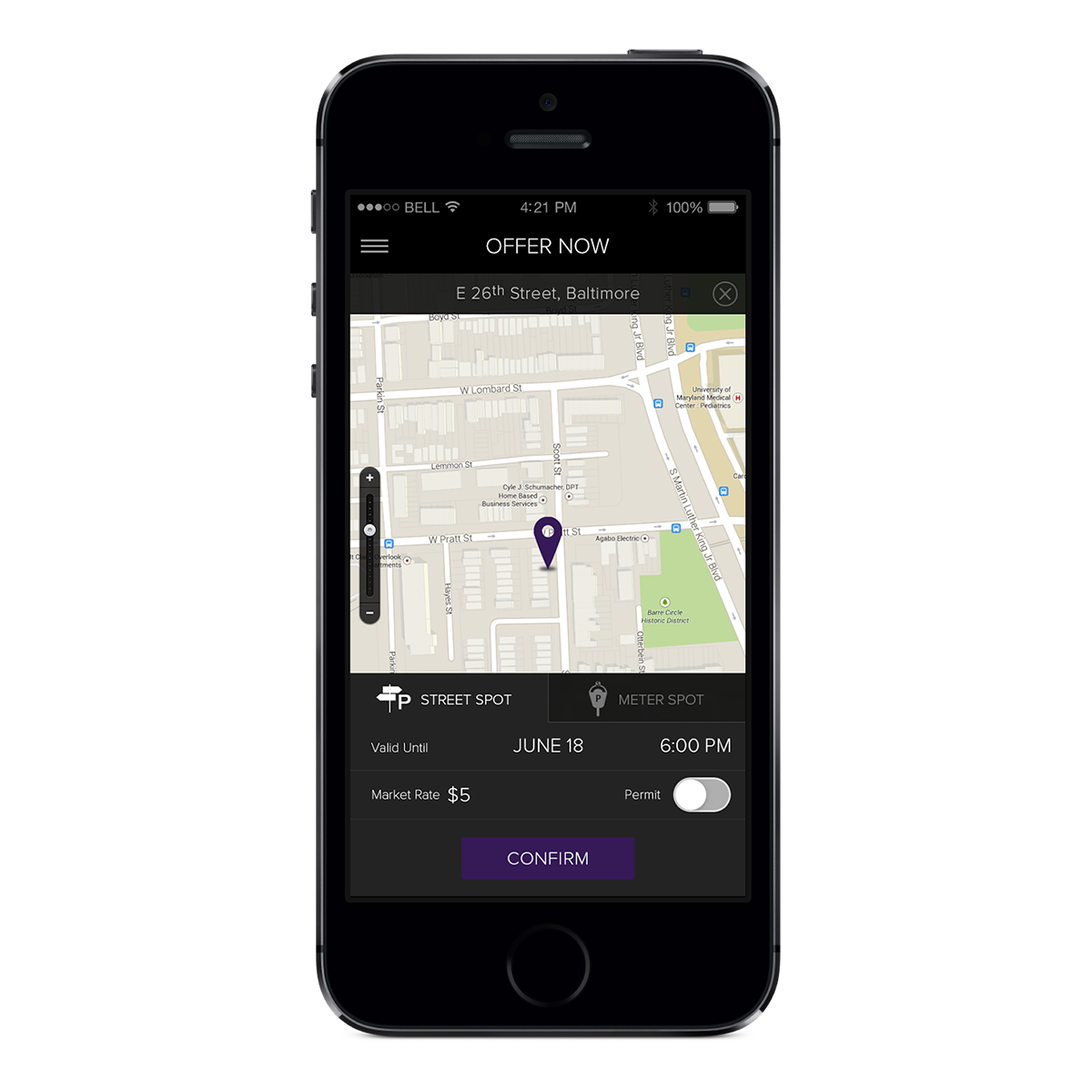City Council Bans Parking Apps Like Haystack

Image via Haystack
The Boston City Council officially put the brakes on parking space saving apps like Baltimore-based Haystack on Wednesday.
During a hearing at City Hall, officials voted in favor of a new ordinance that effectively bans the selling, leasing, or reserving of public parking spots owned by the city for a profit.
The new ban, which carries a $250 fine per violation, squanders newly introduced mobile apps like Haystack, which lets users who download the app alert nearby drivers that they’re leaving a space, and sell it to them for a fee.
“This app threatens Boston’s authority,” said Councilor Michael Flaherty, who motioned to pass the ban before officials voted on it.
The ordinance was sponsored and proposed by Councilor Frank Baker. A subcommittee met with Haystack CEO Eric Meyer and officials from various city departments earlier this month to discuss the rollout of the app, before determining it would eventually lead to increased traffic jams and road rage incidents the city doesn’t have resources for.
In a statement released by the Haystack team, just moments after the City Council vote, the company said they felt targeted, and that the decision to enact such a ban came without concrete proof that the app would lead to such problems.
“We believe that taking actions against new ideas and passing legislation based upon hypothetical concerns that have not materialized in the actual implementation of the Haystack app is premature and does nothing to help solve Boston’s acknowledged parking issues,” the statement said. “The passage of this ordinance is a step in the wrong direction for parking innovation, and for innovation of every kind.”
City Councilor Tito Jackson sympathized with Haystack, and said he worried what kind of message the ordinance would send to Boston’s booming tech community.
“The council actually risks thwarting technology and the innovative environment we have here,” said Jackson. “I’m really torn about this, and the prospect of this.”
He said he worried about the potential “blowback,” and wondered if there was a way to form a partnership with companies like Haystack, relative to revenue, to help solve some of Boston’s parking woes. “I think there’s a question in that regard,” said Jackson.
City Councilor Matt O’Malley, who considers himself a champion of technologies like Uber, Lyft, and Airbnb, said he would also like to find a way to work with the company, but under their current means of operation he feels Haystack oversteps their bounds.
“The difference between them is that it’s public property, versus private property,” O’Malley said.
Haystack representatives said they will suspend service in Boston this week until further notice, “in the hopes of engaging with the Office of New Urban Mechanics and local lawmakers to identify a modified approach to parking issues that can be supported by City Hall.”


